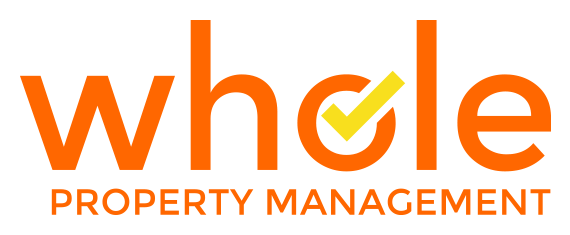Guide to Making a Solid Lease Agreement For Your Rental Property
In order to reduce future disputes and outline the terms of the agreement, it’s a good practice for landlords to have tenants sign a lease agreement before they allow them to reside on their property. This ensures that both parties are in full agreement with the rental terms and conditions.
What Is a Lease?
A lease is a document that details the agreement between the landlord and tenant, concerning the terms and conditions of renting a property. It contains the policies, restrictions, and disclosures that landlords are required to reveal under state laws. When a lease agreement is signed, both the landlord and tenant must abide by it.
A lease agreement can be a source of reference to guide renters on specific processes, such as paying the rent, conducting end-of-tenancy cleaning, or requesting property maintenance. It’s where they can find property policies, disclosures, and their rights and responsibilities.
What Is The Purpose of a Lease?
Even if you have a great landlord tenant relationship, conflicts can still materialize later on. To prevent minor disputes from escalating, a lease is handy to remind both parties of their duties. If a lawsuit is filed against you, you can also bring the lease since it is legal and acceptable to present in court.
With no written document at hand, it will be tough to prove a verbal agreement during a dispute. A renter can forget certain rental conditions. They can also argue that they misinterpreted the terms discussed previously. This is the reason that you should opt for a written lease to make all policies clear and protect your interests.

At first, it may seem like crafting a lease is difficult, but once you know what details to include, writing a clear and specific lease will be a breeze.
Here are vital items that should appear in your leasing agreement:
Names and Addresses
Make sure to write down the full names of all the involved parties on the lease agreement, including the complete property name and address of the rental place. If your property is an apartment or condo unit, then the unit number must also be stated to identify it from the rest of the rental units.
Rental Due Date
It’s essential to include the full payment date on the lease agreement so there are no excuses or confusion coming from the renter. State the month, day and year of the first rent due, for example, the first rental payment is on July 1, 2023.
Also state the amount of time that passes between each payment, for example, monthly or weekly.
Rental amount
The rental amount must appear in words and figures to make things clear. If you intend to collect other fees, such as pet rent, you should place them in another section of the lease agreement to ensure the tenant understands these are two separate amounts.
Rental period
Stating the complete dates of the rental period is advisable. For example, the duration of the rental term is from July 1, 2023 to June 30, 2024. This protects you from squatters or renters overstaying their lease which can happen when you are not specific or leave room for interpretation.

It is here that you will state how long the lease is for. A lease can be month-to-month or yearly.
Signatures
Both parties must affix their signatures to validate the lease. The date of the signing must also be included. This signifies the landlord and tenant willingly agree to the terms covered by the contract.
Important Clauses and Policies to Include in Your Lease
You may notice that some leases in the same neighborhood look similar. The reason is they adhere to state laws.
Here are some clauses you can decide on for your leasing agreement:
Occupancy and Subletting
Some landlords permit their renters to share the rental fee with another tenant. If you aim to be flexible, you can allow subletting, but require the renter to submit an approval request first so you can check the new residents before they stay on your property.
Tenant Rights and Responsibilities
Tenants have certain rights and responsibilities in terms of rent, cleanliness and noise. Tenants are responsible for paying rent on time. All tenants in the building have the right to live in peace and quiet.
Keeping your rental well-maintained makes it attractive to other occupants. But this isn’t a task you can do alone, renters also have maintenance duties to accomplish. You must supply trash receptacles but they must dispose of their garbage properly.
Landlord Rights and Responsibilities
Your landlord obligations must also be listed on the lease agreement. You must outline your maintenance duties and provide timeframes for property repairs.

This also includes sending notices whenever you want to access the rental space for regular property inspections or fixing a property issue. Check the state laws for an accurate notice period. If no specific time frame is given, notifying a tenant within 24 to 48 hours is acceptable.
Termination of the Lease
The termination clause informs your renters when they can legally end the lease. Usually, state laws allow tenants to move out for specific reasons, such as being a victim of domestic violence or landlord harassment, or going on active military duty.
Should you allow other reasons for a renter to break the agreement legally, you must include these conditions on the lease agreement to limit conflicts.
Security Deposit
As a landlord, you must mention the security deposit amount you require from the tenant. Some states mandate landlords to divulge where the security deposit is kept and if it’s in an interest-drawing account. If it is, they must also reveal the amount of the interest.
Disclosures
Renters have the right to be aware of specific information related to the rental property. Landlords should disclose if the property is located in a flood zone area, affected by bed bugs, radon, or lead-based paint
Bottom Line
A lease agreement benefits landlords by putting their minds at ease. It also limits conflicts since clear terms and conditions are outlined in the contract.
If you’re seeking a trusted property manager to help you create a solid lease agreement on top of marketing your vacant rental, screening prospective tenants, and maintaining excellent upkeep of your rental property, contact Whole Property Management today!
